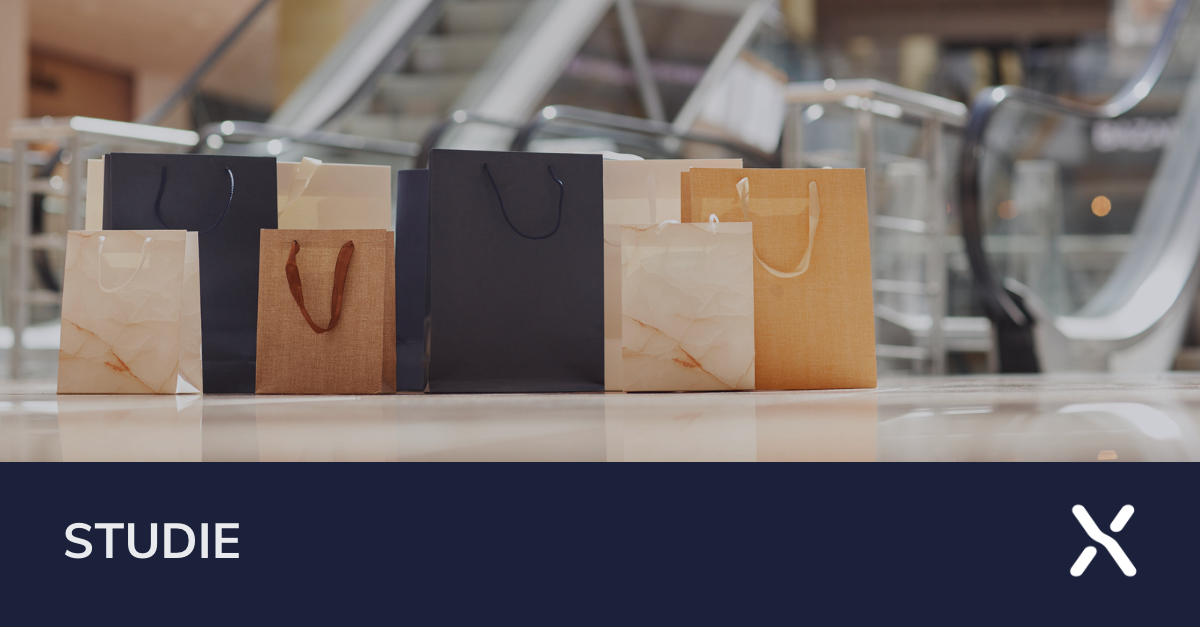Crisis or Buying Mood – quo vadis Retail?
The situation of the retail sector in Germany is not all that bad, if the KPMG Retail Sales Monitor is to be believed. Nevertheless, the situation remains challenging: it is still uncertain which factors will most influence consumer behaviour this year. The good news: there are many starting points to be successful in the future!
Stephan Fetsch, EMA Head of Retail at KPMG Business Advisory Services is summing up the prerequisites for future success: “Stationary retailers are challenged to establish sustainable business models in order to meet the demands of consumers and offer them a unique customer experience. Innovative store concepts with event character, immersive shopping experiences, AI-supported customer services and gastronomic offerings are pioneering approaches for restructuring inner-city shopping areas.
And indeed, the brick-and-mortar business has been experiencing a small upswing since last year. In 2022, it recorded an increase in turnover of 1.3 percent, while ecommerce had to accept a significant decline in turnover (-8.6 percent). Above all, the fashion trade closed with sales growth for the first time in two years – namely a whopping 27.5 percent. The consumer electronics sector also recorded an increase in turnover of – all in all not less than 6.2 percent. The reason why online retail declined is due to the fact that it had grown disproportionately during the lockdown periods and passed to a phase of normalisation again in 2022. Nevertheless, the online turnover of 25 percent was clearly above the pre-Covid level.
Various Challenges despite good consumer climate
So the consumer climate is better than it has been for a long time: the Germans’ propensity to buy has grown significantly, the “propensity to buy” sub-indicator rose significantly by 4.8 points in February compared to the previous month to a total of 69.6 points. However, it is uncertain how 2023 will develop overall. The German EHI Retail Institute found out in a survey what is currently concerning retailers most. Here the result:
68% Inflation trend
53% subdued consumer sentiment
42% property costs too high
40% supply chains and product procurement
39% Excessively high ancillary and management costs
25% changed purchasing behaviour due to the pandemic
Consumer expectations and solutions
While some of these factors are difficult for retailers to influence, others lend themselves to being influenced – as for example optimizing sourcing and supply chains or meeting consumer expectations. Another finding shows that consumers are increasingly looking for sustainable, local products and online shopping with pick-up, as well as one-stop shopping and click & collect services for faster and easier shopping. Experiential shopping is also very popular.
In consequence, a key finding of the survey is that convenience, time savings and experience play an important role for future sucess in retail. The good news is that it is not that complicated to implement corresponding services in a brick-and-mortar store. Possible starting points would be, for example
• Smart shopping trolleys that make queues at the checkout obsolete
• In-store navigation
• Targeted, app-controlled display of special offers directly in the shop.
• Immersive shopping experiences through self-presentation of the shopper as for example virtual fitting opportunities
• Products that can be experienced
• Special services
• Store concepts with event character
• Integration of gastronomy concepts
An even greater competitive edge can be achieved can be achieved by constantly monitoring and making timely use of future technologies such as the Metaverse. It will blur the boundaries between the real and virtual worlds – just as it does between tangible and intangible assets. Many retailers see this as a real option for the future; 72 percent of those surveyed assume that the Metaverse will soon play a major role in retail.
Microsoft Power Platform – a solid Basis for Smart Shopping Experiences
xalution Managing Director Tobias Endl confirms the trend analysis: “Many retailers who work with us want to be at the forefront of opening up new topics. They can do that, because with the Microsoft Power Platform they already have a solid basis for creating smart shopping experiences and even better customer service”.
On the other hand, those who have not yet implemented the platform concept in their IT landscape, or have done so inadequately, will find it difficult to keep up. In these cases, the integration of, for example, an ERP system serving as the backbone of the company, a modern CRM solution with flexible additional services or various tools in order to create an agile solution landscape is an almost unsolvable task. It is a fact that optimization strategies often fail because of outdated or inconsistent systems.
Therefore, our tip: Just get in touch with us and find out about the many possibilities that xalution offers with the Microsoft ecosystem in a non-binding initial consultation. This way, you will be well prepared for the future.
>> Contact us now!
More information wanted? You can find out more about current trends in the KPMG Retail Sales Monitor, which you can download here. It is published four times a year and is providing current information about the developments in the German retail sector.
Download Retail Sales Monitor